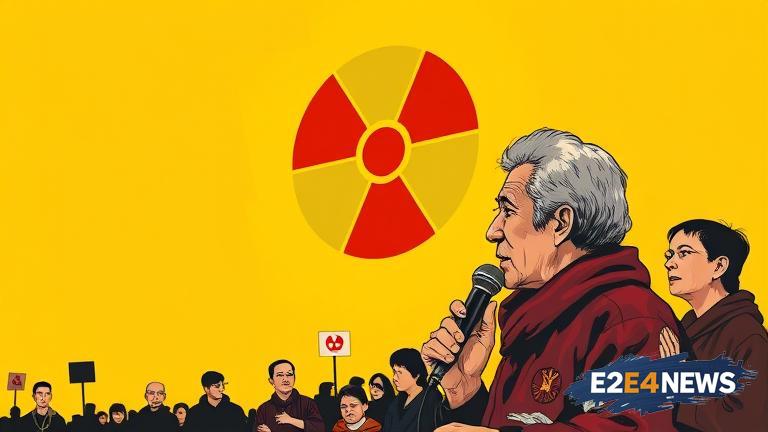Japan’s atomic bomb survivors, known as hibakusha, have been advocating for the abolition of nuclear weapons for decades. Their experiences during the bombings of Hiroshima and Nagasaki in 1945 have left them with physical and emotional scars that still linger to this day. Many survivors have dedicated their lives to sharing their stories and raising awareness about the devastating effects of nuclear weapons. They have traveled the world, speaking at conferences and events, and meeting with world leaders to push for disarmament. Despite their efforts, the threat of nuclear war still exists, and the hibakusha continue to sound the alarm. The bombings of Hiroshima and Nagasaki killed an estimated 140,000 people immediately, and many more died in the following weeks and months from injuries and radiation sickness. The survivors have seen firsthand the destruction caused by nuclear weapons and are determined to prevent such a tragedy from happening again. They have formed organizations and advocacy groups to push for nuclear disarmament and to support other survivors. The Japanese government has also been working to support the hibakusha, providing them with medical care and financial assistance. However, many survivors feel that more needs to be done to address the ongoing effects of the bombings. The hibakusha have also been critical of the Japanese government’s stance on nuclear weapons, arguing that it is not doing enough to prevent the proliferation of nuclear arms. In recent years, the survivors have been joined by younger generations of Japanese citizens who are also advocating for nuclear disarmament. Together, they are working to raise awareness about the dangers of nuclear weapons and to push for a world free of nuclear arms. The hibakusha’s message is one of peace and reconciliation, and they hope that their stories will serve as a warning to future generations. They believe that the only way to prevent nuclear war is through education and awareness, and they are dedicated to sharing their experiences with the world. The survivors have also been recognized internationally for their efforts, with many receiving awards and accolades for their advocacy work. Despite the progress that has been made, the hibakusha know that there is still much work to be done. They will continue to share their stories and advocate for nuclear disarmament until their message is heard and the world is free of nuclear arms. The hibakusha’s struggle is not just about their own experiences, but about the future of humanity. They believe that the use of nuclear weapons is a threat to all of humanity, and that it is the responsibility of governments and citizens around the world to work towards disarmament. The survivors are also calling for greater support for victims of nuclear weapons, including those who have been affected by nuclear testing and other forms of nuclear exposure. They believe that it is essential to provide medical care and financial assistance to those who have been affected by nuclear weapons, and to work towards a world where such tragedies are never repeated. The hibakusha’s message is one of hope and resilience, and they will continue to advocate for nuclear disarmament until their goal is achieved. In conclusion, the hibakusha’s story is one of tragedy and loss, but also of hope and resilience. Their experiences serve as a warning to future generations about the dangers of nuclear weapons, and their advocacy work is a testament to the human spirit’s ability to overcome even the most daunting challenges.





